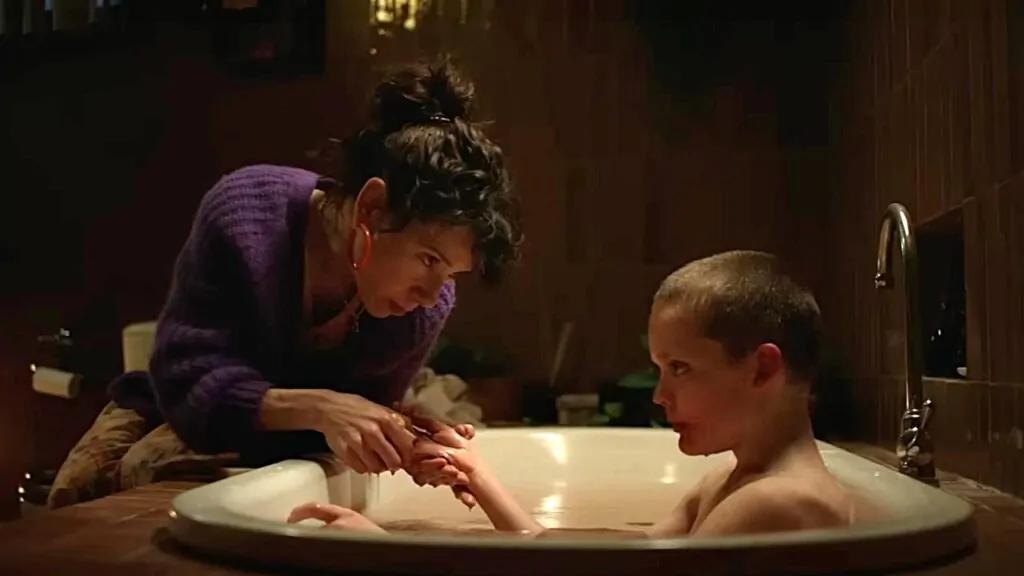
When Australian YouTubers-turned-filmmakers Michael Philippou and Danny Philippou unleashed Talk to Me onto the world in 2022, film critics and horror fans alike were quickly enamored with their palpable and infectious passion for the genre. Every red carpet, press junket, and film screening looked like a blast to attend because the Philippou boys are the living embodiment of “Hell yeah, brother!”, oozing the type of unnaturally and undeniably cool vibes that only your older cousin or big sister’s high school boyfriend can exude.
And that energy was reflected in their debut feature, a story about a twisted party game featuring a severed, embalmed hand that allows foolish young adults to microdose possession. Amid even the film’s darker moments, there was always a sense of “fun” hanging in the air, not unlike the early work of Sam Raimi, another filmmaker with a similarly pitch black sense of humor. A24 even sold replicas of the hands that double as “smoking devices,” which is why folks may have forgotten the depths of the depravity these twin filmmakers are capable of bringing to the screen when they feel like it.
Bring Her Back takes all of the nightmarish, horrifying explorations of grief and mortality touched upon in Talk to Me and attempts to strangle the audience with it. If we try to fight it, we will succumb to the darkness, but if we embrace it, the Philippous have such sights to show us.

The film stars the always magnificent Sally Hawkins as Laura, a woman who has recently become the foster parent of teenage Andy (Billy Barratt) and his younger sister Piper (Sora Wong) following the death of their only living parent. Andy is waiting out his time in the system, hoping to obtain guardianship of Piper when he turns 18. He is willing to take on the responsibility of tending to his low-vision sister, who can only see shapes, to ensure she’s given the best care.
At first, Laura seems like a perfectly fine foster parent, but there are signs that something isn’t quite right pretty much immediately. For one, she has a taxidermied pet dog, which, while not unheard of, is certainly odd. She’s also currently raising another foster child, Oliver (Jonah Wren Phillips), who lives with selective mutism and has a penchant for eating anything. Ollie spends his time watching old home movies of Laura’s dead daughter (Mischa Heywood) and being soothed by Laura, who does this by mimicking cult rituals playing on her TV via a VHS tape.
We don’t know how Laura obtained this footage or how long she’s had a vested interest in this sort of thing, but I can’t decide if that’s something I ever want to know, or a horrifying secret better left unanswered. The supernatural elements are left ambiguous, which feels frustrating until you think about the ambiguity of death, grief, and the cruelty of mortality that we’re all forced to reckon with in our own lives. This feels like an intentional decision, even if it’s one folks might not be on board with.
Much like Christian Tafdrup’s 2022 Speak No Evil, writhing in the misery of Bring Her Back triggers such existential agony and visceral discomfort that it can make the movie feel like an endurance test. The Philippous constantly distort the sight and sound of the players at the center of the story, thrusting the audience into the same uncertain turmoil as the characters themselves.
It’s hard to discern if what we’re seeing is as it is, or if it’s the result of something more heinous. It’s certainly the point, but one that might leave some viewers wanting for more clarity. All of the characters at the center are plagued by profound, personal losses, and without any real guide on how to deal with that much immeasurable pain, splatter their grief like blood on the pavement. Hawkins is delivering a masterclass, but it’s Barratt’s tortured, parentified teenage anguish that serves as the film’s guiding force.
The title of the film doubles as Laura’s mission, and Andy/Piper/Oliver are the key to making it happen, but rather than sprint to the inevitable climax, the Philippous spend their precious time torturing the audience. If we already know where we’re going to end up, why not savor the journey? In this case, it’s a ghastly trip of body horror, manipulation, frequent bombardments of sensory overload, and diving headfirst into horror’s most taboo subject — violence toward children.
Hawkins’ casting is the crux of why Bring Her Back works as well as it does, because even as she descends into contemptible mania, the audience never once is meant to turn on her. That’s Paddington Bear’s mom, for crying out loud! She is essential, because while Laura’s desire to bring back her deceased child is completely understandable and well-worn territory in the genre (Pet Sematary, anyone?), the methods of how she’s to bring her back are unthinkably nasty and will challenge even the most veteran of horror fans.

